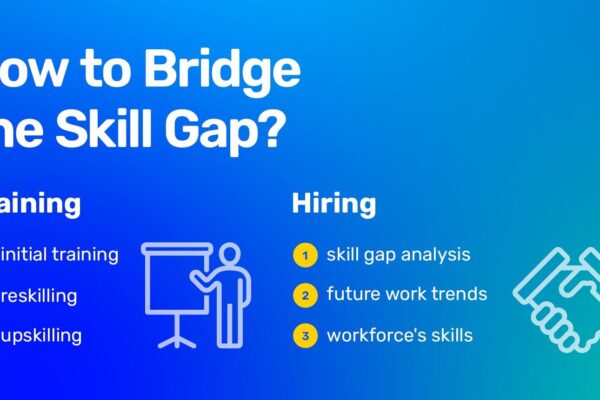How to Prepare for the Future of Work in a Digital Age
Introduction
The future of work is being reshaped by rapid advancements in technology, transforming how we operate in the workplace. As businesses adapt to these changes, it’s crucial for both employers and employees to prepare for the digital age. At KleisTech, we understand the importance of staying ahead of these trends to ensure success in the evolving job market. In this blog, we’ll explore key strategies for preparing for the future of work in a digital age.
Embrace Continuous Learning and Upskilling
1. Commit to Lifelong Learning:
– The digital age demands continuous learning. Encourage employees to pursue further education, attend workshops, and participate in online courses to keep their skills relevant.
– Why It Matters: Staying updated with the latest technologies and industry trends helps employees remain competitive and adaptable.
2. Invest in Employee Training:
– Offer training programs and professional development opportunities that focus on digital skills, such as data analysis, coding, and digital marketing.
– Why It Matters: A well-trained workforce is more efficient, innovative, and better equipped to handle future challenges.
Foster a Culture of Innovation
1. Encourage Experimentation:
– Create an environment where employees feel comfortable experimenting with new ideas and technologies without fear of failure.
– Why It Matters: Innovation drives growth and can lead to the development of new products, services, and business models.
2. Adopt Agile Practices:
– Implement agile methodologies to increase flexibility and responsiveness to market changes.
– Why It Matters: Agile practices improve collaboration, enhance project management, and speed up the time-to-market for new solutions.
Leverage Technology to Enhance Productivity
1. Implement Automation:
– Use automation tools to streamline repetitive tasks, allowing employees to focus on more strategic activities.
– Why It Matters: Automation increases efficiency, reduces errors, and frees up time for creativity and problem-solving.
2. Adopt Collaborative Tools:
– Utilize digital collaboration platforms such as Slack, Microsoft Teams, and Zoom to facilitate communication and teamwork.
– Why It Matters: These tools enhance remote work capabilities and ensure seamless collaboration regardless of location.
Focus on Remote Work and Flexibility
1. Support Remote Work:
– Develop policies and provide the necessary technology to support remote work arrangements.
– Why It Matters: Remote work offers flexibility, improves work-life balance, and can increase employee satisfaction and retention.
2. Offer Flexible Schedules:
– Allow employees to choose flexible working hours that suit their personal needs while meeting business requirements.
– Why It Matters: Flexibility can boost productivity, reduce burnout, and attract a diverse talent pool.
Prioritize Cybersecurity and Data Privacy
1. Implement Robust Security Measures:
– Ensure that your organization has strong cybersecurity protocols to protect sensitive information.
– Why It Matters: Cyber threats are becoming more sophisticated, and protecting data is crucial to maintaining trust and compliance.
2. Educate Employees on Cybersecurity:
– Provide training on best practices for data security, such as recognizing phishing attempts and using strong passwords.
– Why It Matters: Educated employees are the first line of defense against cyber attacks, reducing the risk of breaches.
Promote a Balanced Work Environment
1. Support Mental Health:
– Offer resources and programs to support employees’ mental health and well-being.
– Why It Matters: A healthy workforce is more productive, engaged, and resilient to stress.
2. Encourage Work-Life Balance:
– Promote policies that allow employees to maintain a healthy work-life balance, such as flexible hours and time off.
– Why It Matters: Balancing work and personal life leads to higher job satisfaction and reduces turnover.
Conclusion
Preparing for the future of work in a digital age requires a proactive approach to learning, innovation, technology, flexibility, cybersecurity, and employee well-being. By adopting these strategies, businesses can stay competitive and employees can thrive in an ever-changing landscape. At KleisTech, we are committed to helping you navigate these changes and build a successful future. Contact us today to learn more about how we can support your journey into the digital age.









